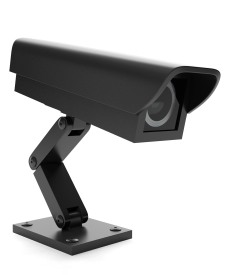 I grew up in the era of the nuclear arms standoff. Thousands of warheads on land, at sea, and in planes stood ready to obliterate most of the human race if the Soviets, Americans, or a rogue third nation launched a nuclear “first strike.” Authors of that era wrote of the psychological effects of living under such a threat (not that it is gone now, but it certainly felt different back then). Some said it rendered life fundamentally meaningless. Why indulge personal hopes or dreams when we, our community, our entire culture could be gone in an instant? Psychiatrist Robert Jay Lifton coined the term “psychic numbing” for the denial we employed, individually and collectively, to allow us to live our lives while faced with the real and ever-present risk that our world might end that very day.
I grew up in the era of the nuclear arms standoff. Thousands of warheads on land, at sea, and in planes stood ready to obliterate most of the human race if the Soviets, Americans, or a rogue third nation launched a nuclear “first strike.” Authors of that era wrote of the psychological effects of living under such a threat (not that it is gone now, but it certainly felt different back then). Some said it rendered life fundamentally meaningless. Why indulge personal hopes or dreams when we, our community, our entire culture could be gone in an instant? Psychiatrist Robert Jay Lifton coined the term “psychic numbing” for the denial we employed, individually and collectively, to allow us to live our lives while faced with the real and ever-present risk that our world might end that very day.
Psychic numbing was curious yet undeniable. We all knew the danger was real. But because the unimaginable horror of World War Three was coupled with an apparent inability to do anything about it, we told ourselves the likelihood was low and somehow pushed it aside. Instead of being the top priority it arguably should have been, nuclear annihilation lurked like an ominous cloud at the periphery of consciousness. We and our comedians made nervous jokes about it. A few idealists joined peace and disarmament groups. Meanwhile, the rest of us watched warily out of the corner of our eye, weighed down by a pervading fatalism and learned helplessness.
The dynamic of psychic numbing is repeating itself today. This time it is not the existential risk of nuclear war, but the reality of losing our privacy. Revelations that our own government monitors our private telephone conversations and tracks our vehicles, allegations that a few years ago would have been waved off as paranoid rantings, are now headline news. We now know that our email is scrutinized for keywords (and possibly collected and stored in its entirety), and our cellphones are used to track our locations. Like the nuclear threat of the 1970s, it feels as if we can’t do anything about it. Our discomfort lurks like an ominous cloud at the periphery of consciousness. We and our comedians make nervous jokes about the NSA. A few idealists join activist groups to oppose the scrutiny of innocent citizens. Meanwhile, the rest of us watch warily out of the corner of our eye, weighed down by a pervading fatalism and learned helplessness.
The theft of privacy has been opportunistic and widespread. The 9/11 terrorist attack justified not only “security theater” at airports, but also a trading away of everyday privacy in the name of national security. Video cameras monitor public areas in major cities; license plates of highway traffic are scanned en masse and recorded by local and state police; the FBI can activate your laptop’s webcam remotely and secretly (with a court order). Meanwhile, quite apart from national security or law enforcement considerations, internet privacy has become an oxymoron. The social web, an aspect of Web 2.0, promoted living one’s life in full view of “friends” and others. Facebook and Twitter distribute micro-doses of fame to monetize the formerly private lives of their users. Younger people post photos of themselves in compromising situations while failing to appreciate the permanence of these images. Older people use online health and mental health support sites, not realizing their “private” conversations are archived and publicly searchable. A great many advertisers and others track web activity for commercial purposes, amassing huge databases without users’ knowledge or consent. Whether on actual highways or the quaintly-named information superhighway, the distinction between public and private is quickly eroding away.
Is privacy passé, a luxury we can no longer afford? Psychic numbing tells us to shrug and bear the new reality. As many thought 30 or 40 years ago about the nuclear arms race, loss of privacy appears to be the price of living in our modern world.
Don’t believe it. The forces that now seek to strip us of individuality and dignity have always been here. New technologies present novel challenges, but human nature hasn’t changed. It took decades to realize we weren’t forced to live with Mutual Assured Destruction hanging over our heads. When we overcome our psychic numbing this time, we will re-discover that nervous humor, wary sidelong glances, and helpless fatalism are not effective ways to deal with a real problem. We will re-discover the value and honor in self-respect.

It’s all very creepy; too reminiscent of “Big Brother” to be comfortable. There is a fine line between ensuring our safety and stripping our privacy.It is difficult to put faith in a government that does not respect any boundaries. This issue begs the question, exactly how helpful have these measures been in protecting us, and are we really willing to continue to allow this incredible invasion of our privacy?